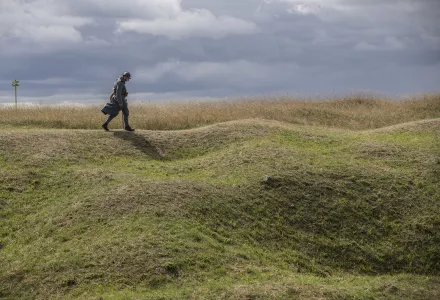International Security is America's leading peer-reviewed journal of security affairs.

Summary
Bad news has a greater influence on judgment and decisionmaking than good news as a result of a subconscious “negativity bias” identified in psychology. In international relations, the bias underlies three key stages of conflict: actors will exaggerate threats, gamble against loss, and remember past failure more readily than any success. An examination of Germany’s actions in World I reveals manifestations of this overarching bias. Decisionmakers need to be aware of the negativity bias and guard against it.
Dominic D.P. Johnson and Dominic Tierney, “Bad World: The Negativity Bias in International Politics,” International Security, Vol. 43, No. 3 (Winter 2018/19), pp. 96–140, https://doi.org/10.1162/ISEC_a_00336.
The full text of this publication is available in the link below.





